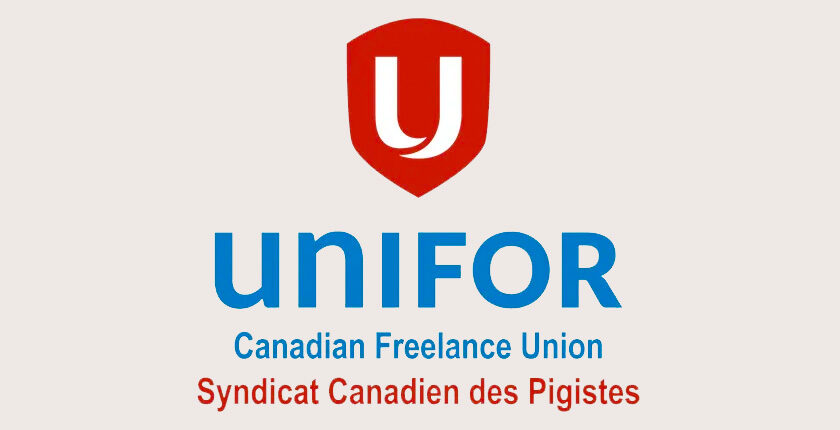Response to concerns about Unifor’s election campaign
September 25, 2019
Response to concerns about Unifor’s election campaign
The Canadian Freelance Union executive expresses its concern about a letter signed by 40 journalists, some members of the Globe and Mail unit of Unifor Local 87M, subsequently signed by other Unifor members. The letter condemns Unifor National and specifically Jerry Dias for conducting a political campaign that targets Andrew Scheer, during the current federal election.
As fellow members of Unifor, though with far less job stability than the members of Unifor Local 87M, we are concerned that our brothers and sisters seemingly identify more with their employer than with the organization that fights their employer on their behalves.
They are concerned that the union’s political work threatens the public trust in their work. As media workers, we absolutely understand the need for media workers to do their job in a fair, honest and accurate manner. Just like when the Globe and Mail explicitly endorses the Conservative Party during an election, the work of their national leadership in no way should be understood as a reflection of journalists’ personal motivations or interests.
In fact, most Canadians would never think that it does. Canadians respect journalists because of quality reporting. They rarely even know that journalists hold membership in a union, let alone which union. Unifor has never claimed to speak on behalf of individual journalists whose jobs it is to impartially report the news.
The letter also argues that their credibility is jeopardized when they interview politicians who feel targeted by their union’s leadership. If this happens, this amounts to an outrageous attack on a free press.
No politician should refuse an interview with a journalist because of the work of their union, just like no politician should refuse an interview with a newspaper because the bosses endorsed a competing party. But rather than call out this phenomenon, these 40+ journalists condemned the political work of an organization whose literal job is to stand up for better working and living conditions for their members.
What’s worse, these journalists have made it impossible to now believe that they can cover Unifor or labour relations without these biases influencing their work.
Members of our own executive are routinely attacked by the far right for our affiliation with Unifor, and we imagine that some of the journalists on this list have seen similar attacks. In our case, every single time, they come from the far-right. Almost always, we can trace the attack back to groups like the Rebel Media. These are not average people who are worried about the impartiality of a free press. They want journalists to fall in line with the conservative political lines of the bosses. We regret that so many have taken the bait.
Unifor is a political organization. It’s through their political action that we have the clout to fight for better contracts. To condemn their political work during an election campaign isn’t a show of neutrality, it’s a show of deep partisanry that is unbecoming of any journalist.
The industry is in a moment of crisis and the solution to this crisis will not be through publicly denouncing the union while management lays off journalists, closes bureaus and slashes budgets. No amount of sucking up to management will save the industry. We need to be clear-eyed about what the pressures are that the industry is facing. The far-right attack on the press by interested parties like the Rebel Media, which the Globe management has recently welcomed with open arms, is a far bigger threat than perceived notions of credibility from motivated far-right activists.
When a member of the Canadian Freelance Union has trouble getting paid, one of our points of leverage is the high-profile that our union has. If someone refuses to pay one of our members, we can demonstrate that Unifor will have our back in pressuring the contractor to pay up. Even though we have concerns about certain aspects of the current national election campaign, we understand that the high profile of our union helps our members assert their rights. And even as our members assert their rights, we understand that when we are working as journalists, we conduct that work with the principles of journalism that are expected of us all.
In solidarity in work and survival,
Canadian Freelance Union executive


